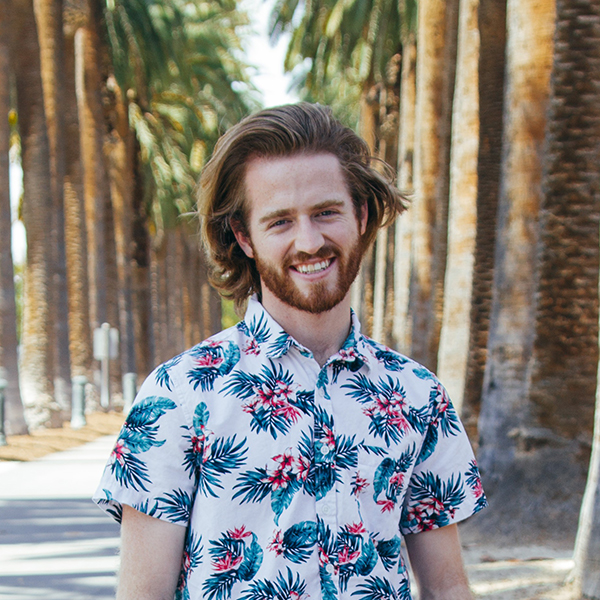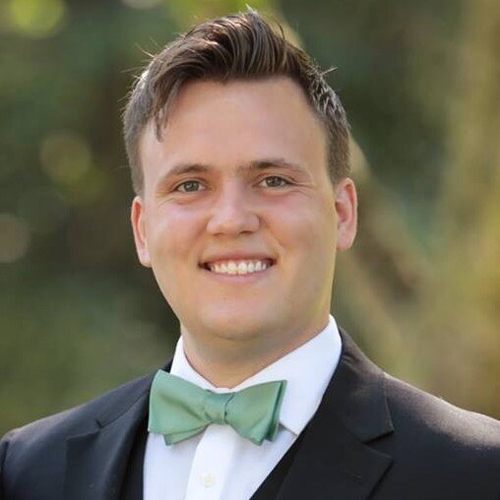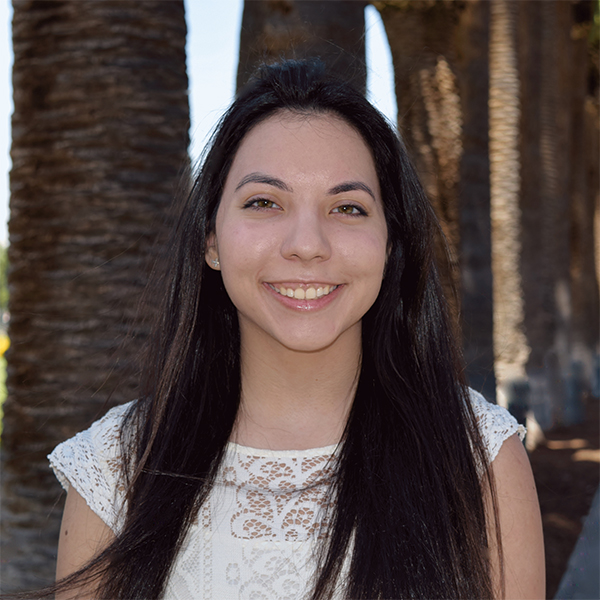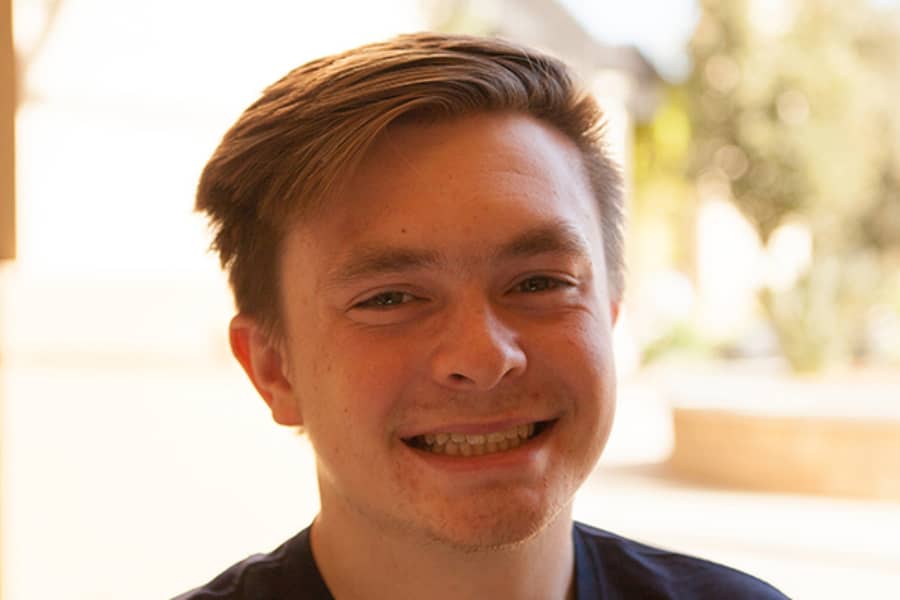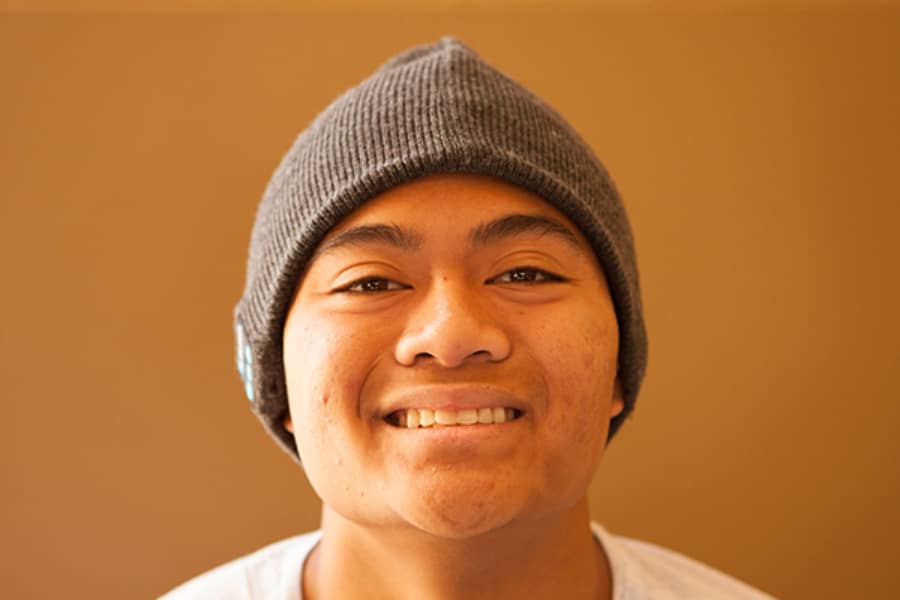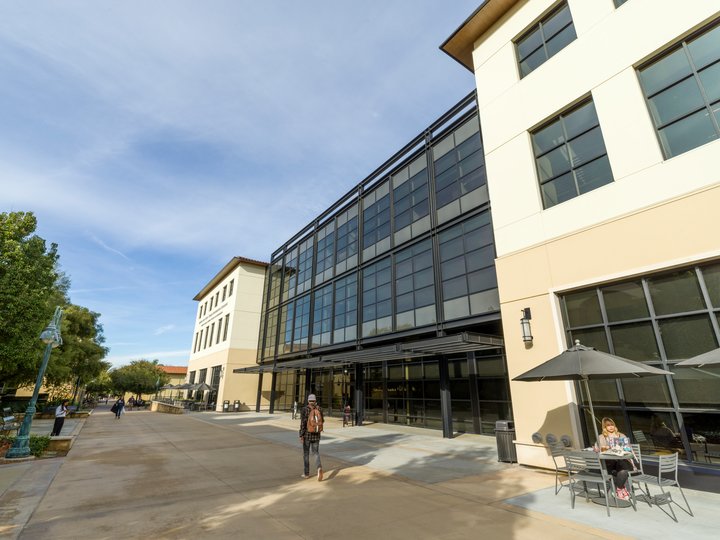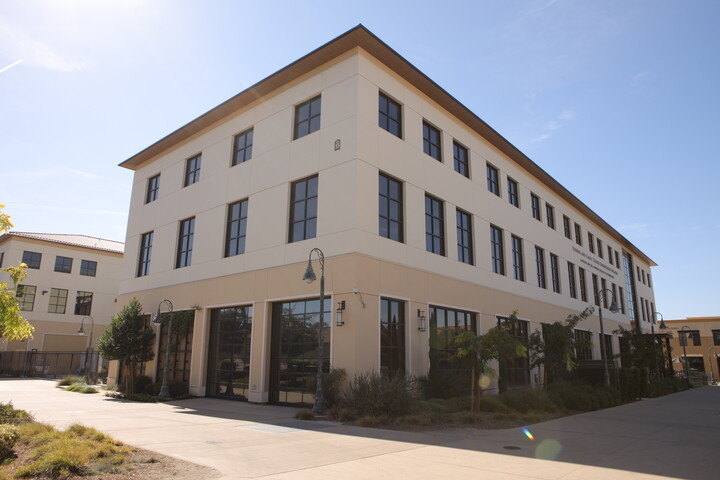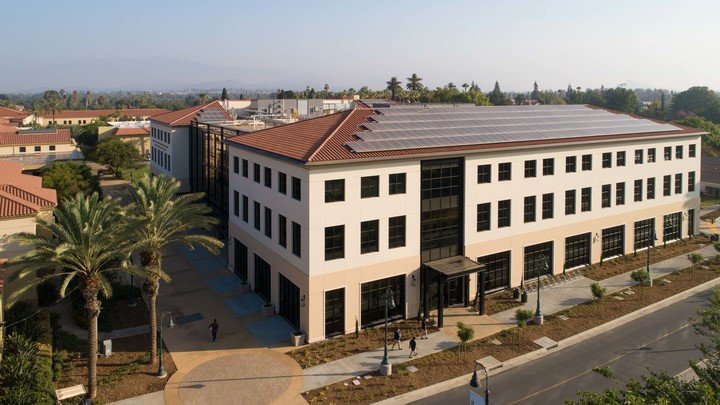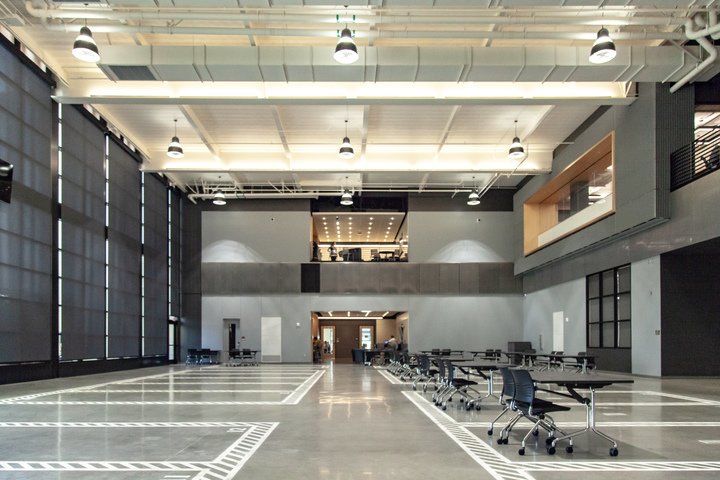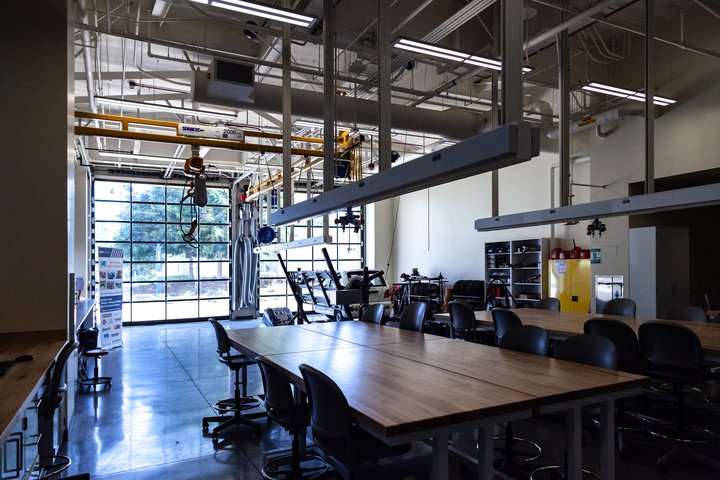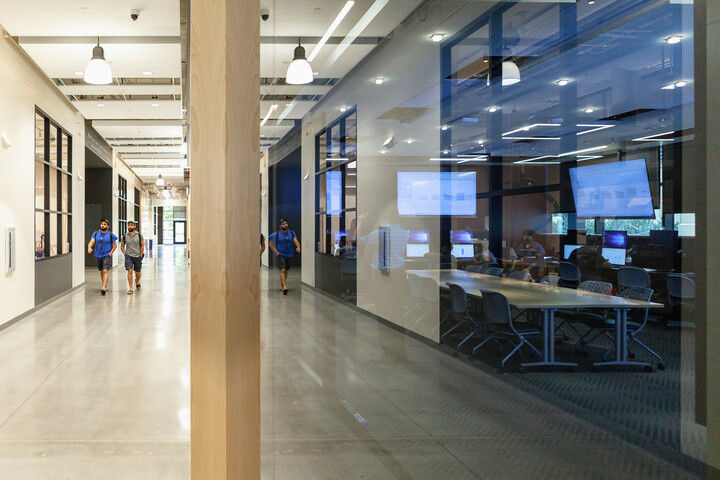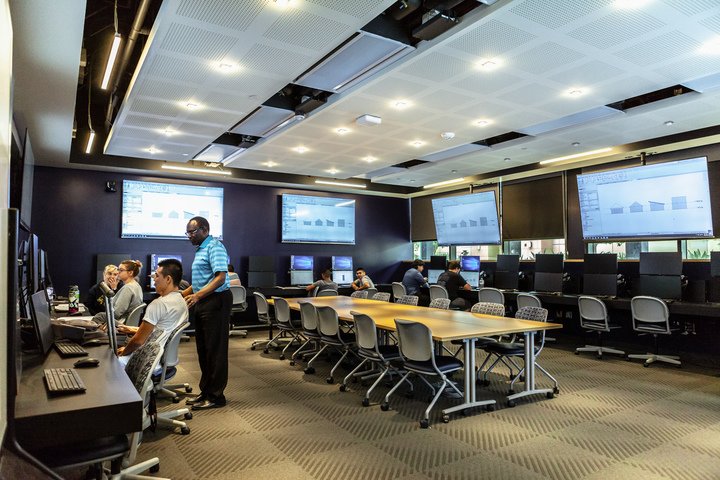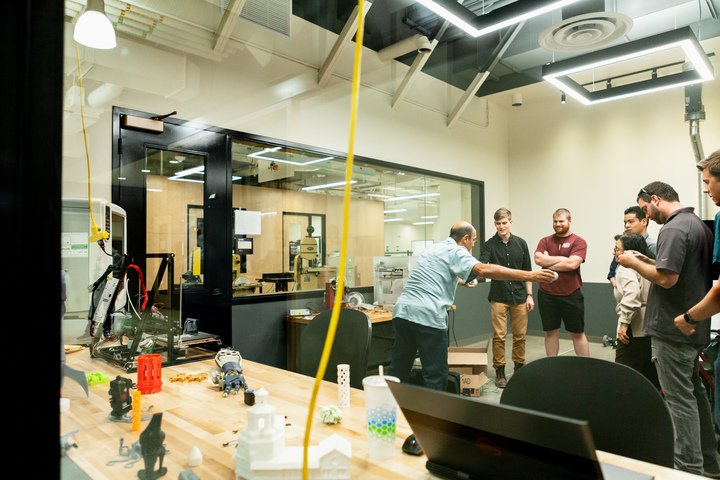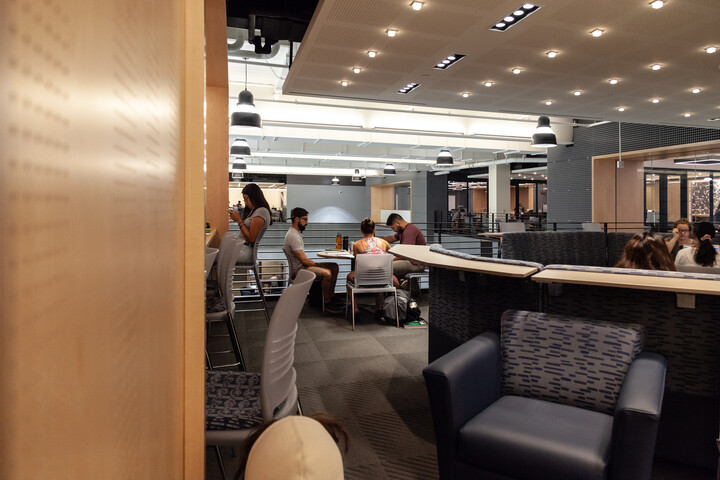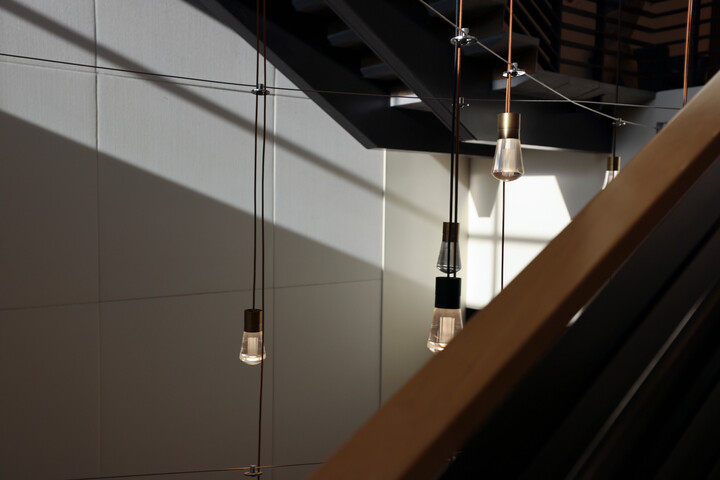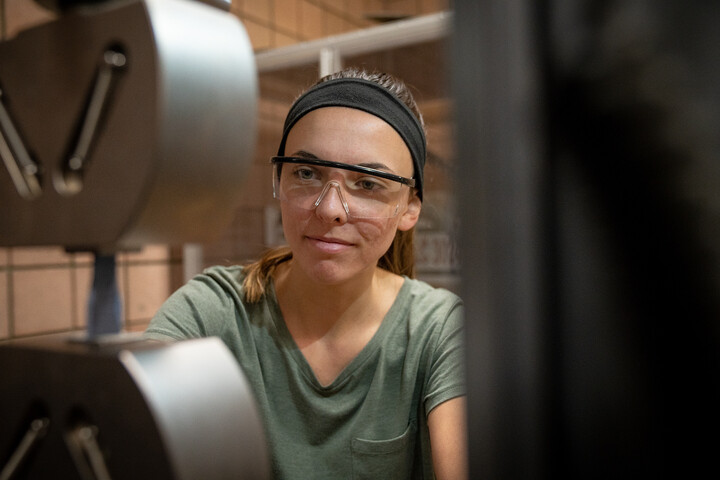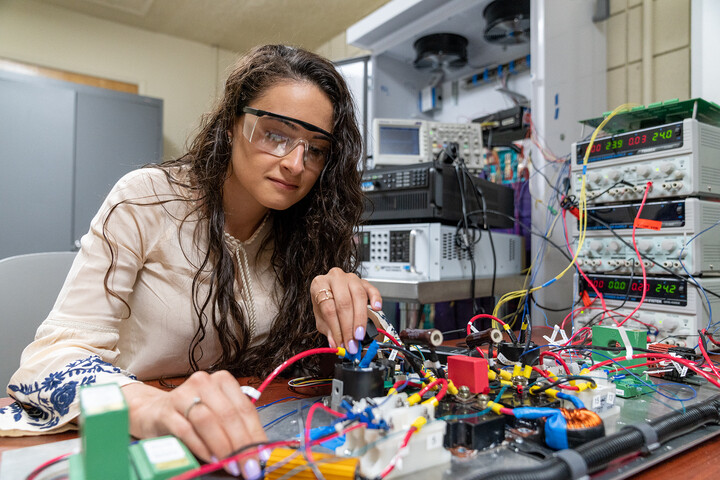Bachelor of Science in Biomedical Engineering
Advance your understanding of engineering, biology and medicine to imagine new possibilities for treating disease and disabilities and improve community and global health.
Create Cutting-Edge Solutions to Support Human Health and Well-Being
Earn your Bachelor of Science in Biomedical Engineering, BSBME from California Baptist University and become a force of innovation in the biomedical field. The training you receive in the BSBME program ensures you have a firm foundation in engineering, biology, anatomy and physiology and computer-aided design — all of which support your intellectual development and career growth.
With a blend of traditional coursework, labs and internships, you receive a thorough experiential education that develops the technical skills and interdisciplinary expertise necessary for success in your post-graduation endeavors.
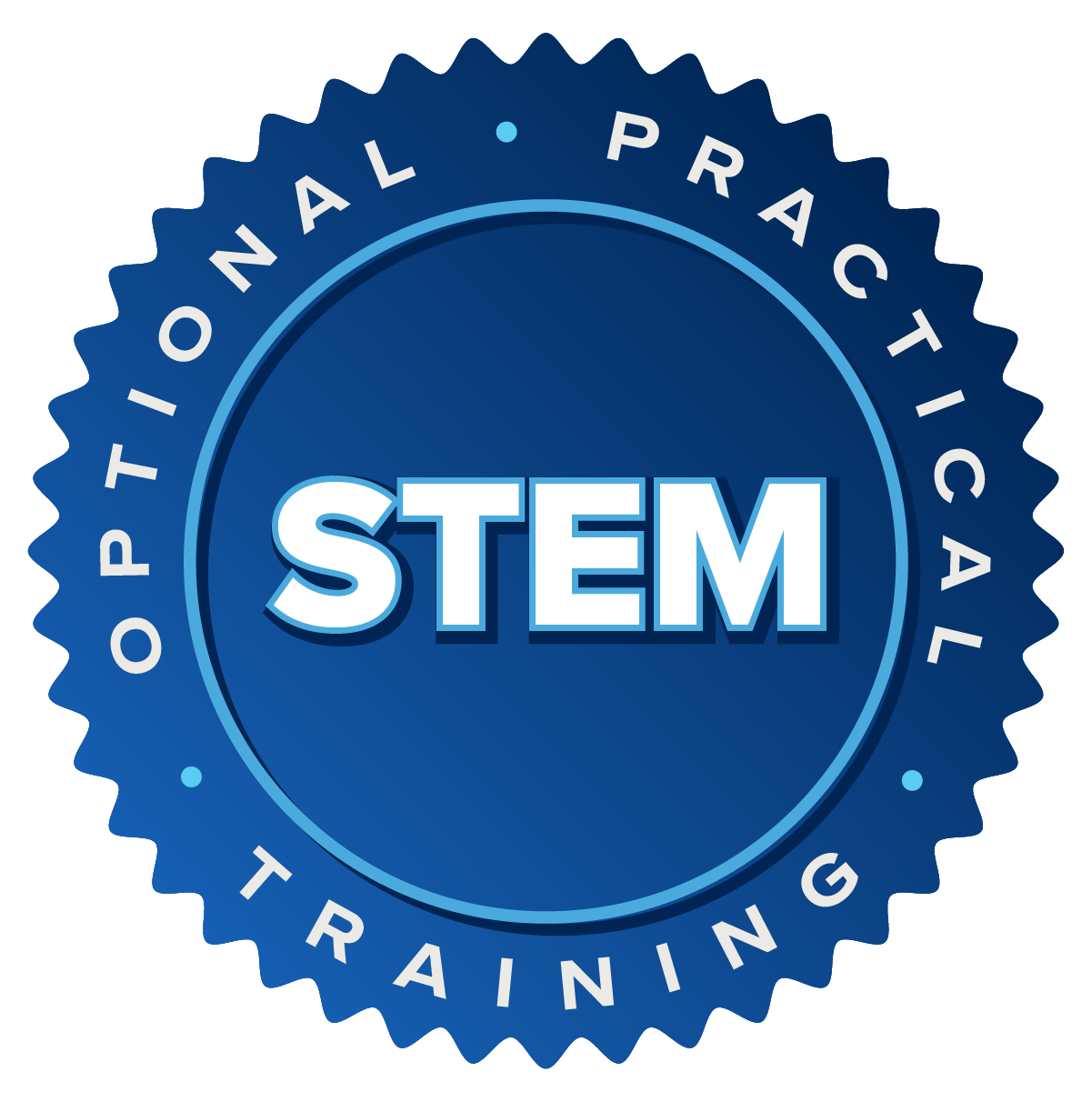
Facts & Stats
The engineering accelerated program will allow students to earn their Bachelor of Science in Biomedical Engineering in as little as 3 years.
Why Choose CBU’s Biomedical Engineering Major?
Biomedical engineers study the human body from an engineering perspective and create high-tech solutions for improving human health. As a biomedical engineering major, you develop a unique expertise that encompasses engineering fundamentals and human physiology. This skill set makes you highly sought after by today’s medical device manufacturers and medical research institutions.
Research and Intern at Industry-Leading Organizations
The bioengineering department prioritizes experiential learning and uses project-based curricula, which empowers you to conduct research and development of new medical technologies under faculty supervision. Additionally, you gain exposure to distinguished companies and organizations through your required internship. Past students have interned at Keck Graduate Institute, National Institutes of Health and NASA Glenn Research Center.
Earn Your Biomedical Engineering Degree in Three Years
If you want to expedite your undergraduate education, CBU offers an accelerated program that allows you to earn your bachelor’s in biomedical engineering in as little as three years. Through this accelerated format, you can begin your graduate education or start your career ahead of schedule.
Learn in an Uplifting Community
The BSBME program offers a warm, inviting environment that lets you collaborate with your classmates and faculty to grow academically, spiritually and socially. We also encourage you to join CBU’s student chapter of the Biomedical Engineering Society, a nationally recognized society that supports your pursuit of excellence and helps you navigate your career path.
What You'll Learn in the Biomedical Engineering Program
In preparation for your career in biomedical engineering, learn about:
- Human anatomy and physiology, chemistry and biology.
- 3D computer-aided design, using Solidworks software to create sketches, extrusions, revolutions and holes.
- Engineering design and documentation.
- Core computer science competencies, such as modern programming methodologies, algorithm development, problem-solving methods and more.
- The fundamentals of bioengineering and varied biomedical engineering fields, including biomechanics, bioimaging, biomolecular engineering, bioinstrumentation and biomaterials.
- Bioelectrical, biomechanical, physiological and computer modeling.
- Biomaterials, including short- and long-exposure materials, biocompatibility, soft materials science and technology and more.
- Statics, which is the study of forces, moments, friction, equilibrium, centers of pressure and other key concepts.
- Circuit theory, including Kirchoff’s laws, linear circuit elements, mesh and node equations and more.
Program Details
The BSBME program’s student outcomes describe the expectations of what students should know and be able to do by the time of graduation. These relate to the knowledge, skills and behaviors students acquire as they progress through the program. The outcomes prepare graduates to attain the program's educational objectives.
Upon graduation, CBU’s biomedical engineering majors obtain:
- EGR 1: An ability to identify, formulate and solve complex engineering problems by applying principles of engineering, science and mathematics.
- EGR 2: An ability to apply engineering design to produce solutions that meet specified needs with consideration of public health, safety and welfare, as well as global, cultural, social, environmental and economic factors.
- EGR 3: An ability to communicate effectively with a range of audiences.
- EGR 4: An ability to recognize ethical and professional responsibilities in engineering situations and make informed judgments, which must consider the impact of engineering solutions in global, economic, environmental and societal contexts.
The BS in Biomedical Engineering program consists of core engineering requirements,biomedical engineering requirements and concentration requirements broken down into the following:
- Lower-division core engineering requirements (11-16 units)
- Upper-division core engineering requirements (12 units)
- Math and science requirements (34 units)
- Lower-division biomedical engineering requirements (18 units)
- Upper-division biomedical engineering requirements (14 units)
- Concentration requirements (16-19 units)
In addition to traditional coursework, students must also complete 200 hours of a pre-approved, supervised internship and meet the general education requirements.
Each degree concentration includes a unique set of requirements students must meet to graduate from the program. To learn more about the tracks, review the biomedical engineering flowcharts on the courses page.
During your time in the biomedical engineering degree program, you must choose one of two concentrations — either the general studies concentration or the mechanical systems concentration.
EGR 263: Introduction to 3D Computer Aided Design
This course introduces you to 3D CAD using Solidworks software and provides an overview of how to create sketches, extrusions, revolutions and holes.
EGR 361: Introduction to Biomechanics
This course explores the fundamental biomechanical principles and their application from a quantitative and rehabilitation perspective.
EGR 364: Bioimaging
This course provides a broad-based overview of major imaging techniques used in biomedical patient care and research.
The Gordon and Jill Bourns College of Engineering at California Baptist University is proud to offer an accelerated program that will allow you to earn your Bachelor of Science degree in as little as 3 years!
Who should look into the 3-year biomedical engineering program?
- High school seniors accepted to CBU engineering who have taken AP Calculus AB exam with a score of 4 or above (or AP Calculus BC with a score of 3 or above) and two other AP subjects valid for degree requirements in the College of Engineering at CBU.
- STEM-minded, highly-motived, and hard-working high school sophomore and junior students who are planning to pursue an engineering degree.
What are the advantages of the 3-year biomedical engineering program?
- Saving tens of thousands of dollars on tuition and other expenses.
- Giving yourself a jump-start on your professional career.
- Allowing you to advance earlier into a post-graduate degree.
- Increasing your lifetime income by starting to work one year earlier.
How does it work?
- Inform your CBU admission counselor that you would like to pursue a 3-year BS degree in biomedical engineering.
- Send your AP or CLEP scores to CBU.
- Develop an academic plan to be reviewed and approved by your department chair before your first week of class at CBU.
- Work with your faculty academic advisor who will monitor your progress and help you resolve schedule conflicts throughout the next three years.
- Expect to take a full load of 17-18 units of courses each semester.
- You will possibly need to take courses during the summer after your first and/or third year(s).
- A required 200-hour internship will mostly likely take place during the summer after your 2nd year. Therefore students on the 3-year plan might not be able to use that summer to take courses.

Mark Gordon, Ph.D.
Professor of Mechanical Engineering
Chemical Engineering & Bioengineering Department
Aerospace, Industrial and Mechanical Engineering Department
Office Phone: 951-552-8730
E-mail: mgordon@calbaptist.edu
Office Location: College of Engineering Building, TEGR 359

Seung-Jae Kim, Ph.D.
Professor of Bioengineering
Office Phone: 951-552-8635
E-mail: sjkim@calbaptist.edu
Office Location: College of Engineering Building, TEGR 360/130A

Seong Kong, Ph.D.
Professor of Biomedical Engineering
Office Phone: 951-552-8854
E-mail: skong@calbaptist.edu
Office Location: College of Engineering Building, TEGR 361

Matthew Rickard, Ph.D.
Professor of Biomedical Engineering
Office Phone: 951-343-4951
E-mail: mrickard@calbaptist.edu
Office Location: College of Engineering Building, TEGR 364
CBU's bachelor degree program in biomedical engineering, BSBME has been accredited by the Engineering Accreditation Commission of ABET, https://www.abet.org, under the General Criteria and the Bioengineering and Biomedical and Similarly Named Engineering Programs Program Criteria.
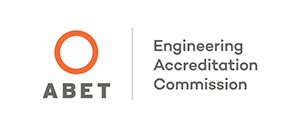
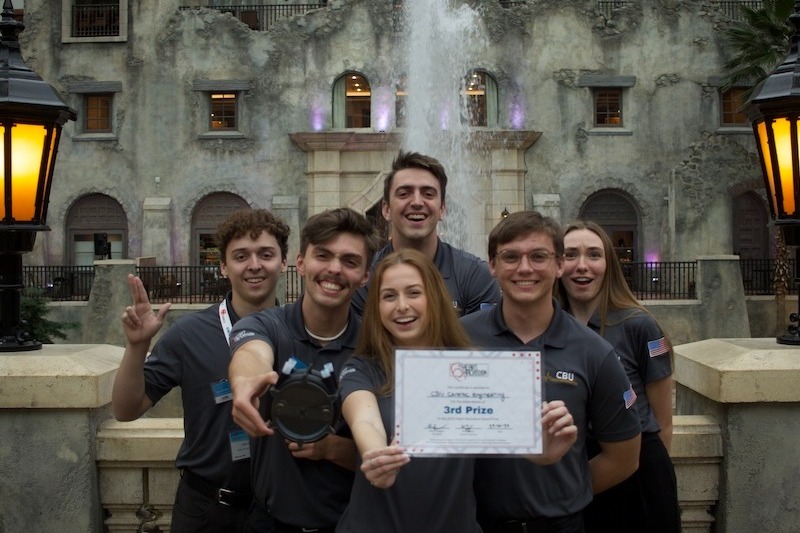
Participate in the Heart Hackathon
You'll have the opportunity to join the CBU Cardiac Engineering Team to help develop and construct an artificial heart prototype and then present it to a panel of top cardiac industry CEOs at the annual Heart Hackathon. Six CBU biomedical engineering students competed in 2023 and took home third place.
Learn in a State-of-the-Art Engineering Building
The Dennis and Carol Troesh Engineering Building at California Baptist University features numerous collaborative workspaces for students in addition to state-of-the-art classrooms and labs.
Careers With a Biomedical Engineering Degree
The U.S. Bureau of Labor Statistics (BLS) projects the employment of bioengineering and biomedical engineers to increase by 10 percent over the next decade, resulting in 1,200 job openings each year.
With a median annual salary of $97,410, biomedical engineers earn more than double the national median annual wage of $45,760. And, depending on their chosen industry, their earning potential can range from $62,650 to $108,690.
Those working in navigation, measuring, electromedical and control instrument manufacturing and physical, engineering and life sciences research and development tend to earn more than those working in academia or healthcare and social assistance.
Related Programs
Discover Your Calling with a Bachelor’s in Biomedical Engineering
At California Baptist University, you unlock your potential, acquire in-demand technical skills and expertise and craft inventive solutions to promote human health. Step into God’s purpose for your life by pursuing your Bachelor of Science (BS) in Biomedical Engineering. Request more information, or submit your CBU application today.

